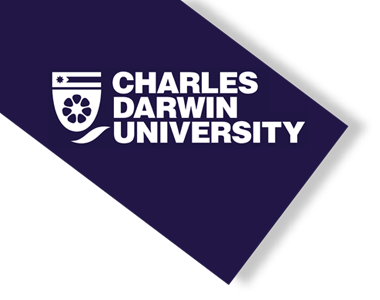Bachelor of Education Early Childhood Teaching
Charles Darwin University
About
The Bachelor of Education Early Childhood Teaching is a new and innovative course that prepares you for registration as an early childhood teacher and as a primary school teacher, offering greater employment flexibility and versatility.
During this course, you explore issues, concepts and practices which are common and specific to both early childhood education (including before school settings) and primary school education.
Key study areas include:
play and learning sciences language and literacy preparation for teaching health and physical education science in education technology and design for education curriculum and programming maths leadership and advocacy humanities, social science and the environment.
Teacher Professional Assessment (TPA) would be met during the course.
Students are encouraged to review the employer eligibility requirements as they can vary state to state.
Structure
Common(2 units) - 20
Common units totalling 20 credit points as detailed below: CUC100 Academic Literacies Through Exploring Sustainability (new title from 2016) CUC107 Cultural Intelligence and Capability
Compulsory Core(27 units) - 270
Compulsory Core Units totalling 270 credit points
ECL123 Mathematics in Early Years (new unit title 2020) ECL155 Preparation for Teaching in Early Childhood and Education ECU100 Arts for Education ECU101 Health and Physical Education in Educational Settings (new title 2020) ELA100 English Language and Literacy in Education 1 EMA100 Mathematics Education 1: Content Knowledge for Education EPE101 Professional Experience: Preparation for Practicum (replaced by EPE102 from 2020) EPE110 Professional Experience: Teaching for Learning (replaced by EPE111 from 2020) ECL224 Science in The Early Years ECL228 Humanities, Social and Environmental Education in Early Childhood (new title 2020) ECU204 Technology and Design for Education ELA200 English, Language and Literacy in Education 2 ELA201 Teaching English as an Additional Language EMA200 Mathematics Education 2: Curriculum and Pedagogy in Primary Mathematics EPE210 Professional Experience: Learner Development (replaced by EPE211 from 2020) ESC220 Science in Education EST203 Teaching Indigenous Learners EST221 Health, Environment and Wellbeing in Early Childhood Education (new title 2020) ECE301 Play in Early Childhood Education ECE302 Leadership and Advocacy in Early Childhood Contexts ECE303 Curriculum and Programming in Early Childhood ECE304 Critical Reflection on Early Childhood: Theory and Practice ECL300 Approaches to Literacy in the Early Years ECU301 Humanities and Social Science Pedagogy (new title 2018) EPE310 Professional Experience: Learning for All (replaced by EPE314 from 2020) EST303 Special Needs in the Classroom (recoded from EST301 2018) EST302 Researching Classroom Practice
Specialist Electives(0 units) - 0
There are no Specialist Elective Units for this course
Electives(up to 3 units) - 30
Units totalling 30 credit points selected from undergraduate units offered by the University.
- 320
Total Credit Points
Entry requirements
Admission requirements are met by one of the following: Successful completion of the Northern Territory Certificate of Education and Training (or equivalent) and the awarding of an Australian Tertiary Admissions Rank (ATAR) of at least 60*. Successful completion of a national qualification at Certificate IV level or higher. Successful completion of at least 0.5 year of full-time study (or equivalent) of a higher education degree/diploma. Overseas secondary or tertiary qualifications considered equivalent to the above Australian qualifications. Attainment of a STAT Multiple Choice score of 135 (or a score of 145 if prior to May 2010). Successful completion of the Tertiary Enabling Program, the Preparation for Tertiary Success courses, or other recognised tertiary preparation course. Submission of an acceptable personal competencies statement and/or employment experience. * After any applicable adjustment factors have been applied.
Institution
